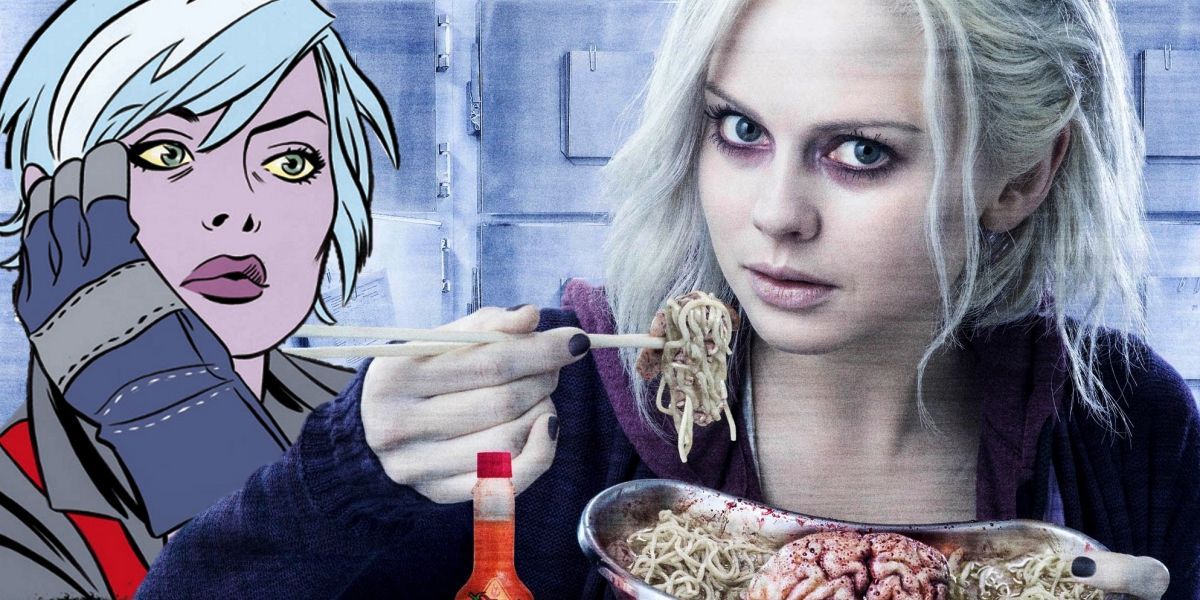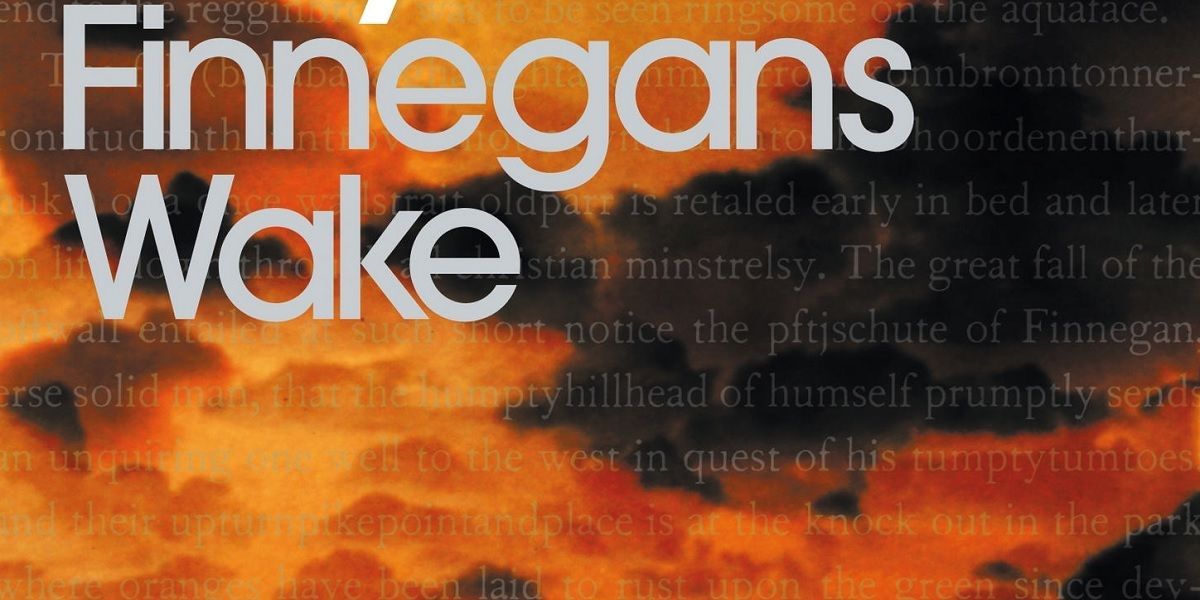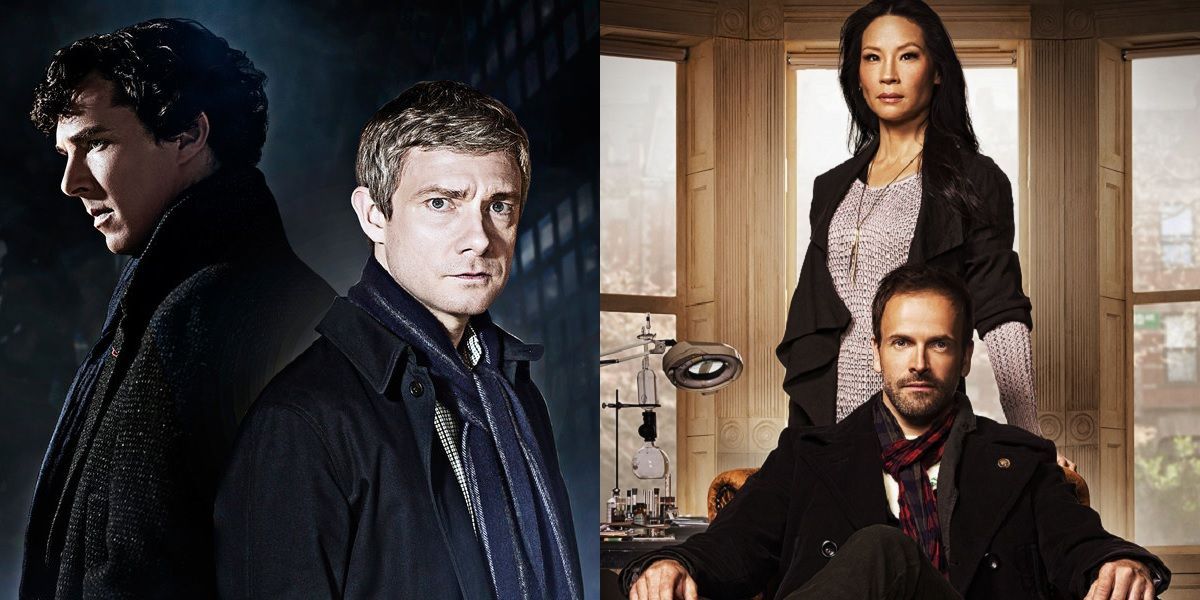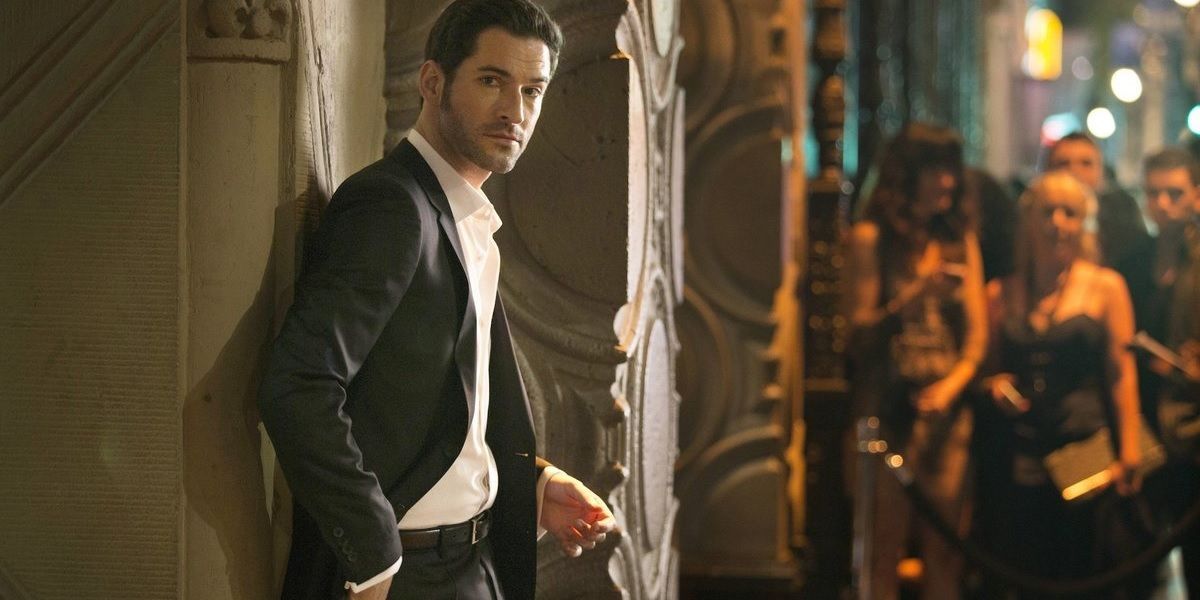Finnegans Wake. Paradise Lost. House of Leaves. These are just a few of the books that have been called "unfilmable," but if any of them were ever adapted into a television series, that television series would probably be a crime procedural.
There's some kind of preservative baked into the concept of a police detective show - with a twist - that allows the same formula to be reworked an infinite number of times. This week brings the season finale of iZombie, Rob Thomas and Dianne Ruggiero's TV adaptation of the comic book by Chris Roberson and Michael Allred, in which a sentient zombie gravedigger became a sentient zombie morgue attendant, helping the Seattle Police Department solve crimes by eating the brains of recent murder victims.
iZombie is far from the only source material to get the crime procedural treatment on its journey to the small screen. Neil Gaiman and Mike Carey's interpretation of Lucifer from DC's Vertigo imprint is coming to Fox this fall and helping an L.A.P.D. cop solve cases ("She's a cop! He's the Devil! Together, they solve crimes!"). Cerebral science fiction Minority Report is in for the same, also on Fox, with emancipated 'Precog' Dash preventing murders with the help of a Washington D.C. detective ("She's a cop! He's clairvoyant! Together, they solve crimes!")
There's no denying that the case-of-the-week structure with a supernatural or sci-fi twist has created some hugely successful and long-running TV shows. However, does reshaping highly unique and original source material to fit into this mold just lead to TV shows that are creatively and narratively constrained? Would a show like Hannibal been have worked out so well if showrunner Bryan Fuller had been forced to have Will Graham and Hannibal Lecter solve a different crime together every week for five seasons?
-
Why TV is Dominated by Genre
Television is built around genre. If iZombie, Lucifer and Minority Report hadn't been selected for adaptation into detective procedurals then they would likely have been tailored to fit another, equally formulaic narrative box. Even shows that are praised for being subversive and original - such as Six Feet Under, House of Cards and Breaking Bad - can be neatly categorized in the 'prestige drama' box.
This isn't unique to the medium, but is present in virtually every sphere where creativity collides with industry. In the long and eloquent words of social scientist Toby Miller, "television is one more industrial process subordinated to dominant economic forces within society that are always seeking efficient standardization." If iZombie hadn't been adapted into a crime procedural then it would have been adapted into a sitcom, a Flash-esque sci-fi adventure show, a prestige drama, a half-hour cartoon series, or any number of acceptable TV drama formats that are tried, tested and pre-approved.
Procedural detective dramas are arguably no more limiting to a writer's imagination than any other kind of show. The TV writing process is commonly structured around a collective effort from the writers' room rather than a single auteur, and those writers are required to fill certain criteria. Whether it's writing stories with a four-act structure (to account for commercial breaks), knowing whether the season arc needs to be stretched out over 10 episodes or 22, or consciously writing bottle episodes to save money for big-budget episodes, TV is all about finding that compromise between creativity and industry.
-
Infinite Ways to Dissect a Crime Scene
In most procedural detective shows - including those of the sci-fi and supernatural persuasion - there's generally a checklist of things to include in each episode. There's a crime of the week, several suspects are interrogated, the investigators chase down a series of red herrings while turning up more clues, eventually the real culprit is found, and we all learned a valuable lesson. But doesn't this get a bit boring?
Not in the opinion of Ed Whitmore, a veteran crime procedural writer who has spent much of his career writing shows of a similar breed, including CSI, Dalziel and Pascoe, and the long-running British crime drama Silent Witness. In a BBC interview released shortly before the season 18 premiere of Silent Witness, Whitmore enthused about what he sees as the virtually unlimited creative freedom available in the TV crime genre.
"You can tell any kind of story you want... We can do stories about serial killers, we can do stories about terrorism, we can do stories about domestic violence, we can do stories about pedophile rings. There's really no way you can't go, because every kind of criminal activity leaves a forensic trace, [and] a lot of criminal activity leaves a body. If you're imaginative and you're inventive... you can drive the 'Silent Witness car' to any destination."
While it could be countered that "as long as it's about a crime" is a pretty significant caveat to the claim of being able to "tell any kind of story you want," Whitmore doesn't appear to be worried about running out of fresh inspiration, even after writing within the genre for so long. He also makes a convincing case for the argument that if a crime procedural is boring and feels unimaginative, it's ultimately the fault of the writers and not the genre.
-
The Case (Study) of the Week
The origin of many modern police procedurals can be traced back to the great-grandfather of them all: Arthur Conan Doyle, and his sharp-minded creation Sherlock Holmes.
When it was originally announced that CBS was doing a modern adaptation of Doyle's Sherlock Holmes mysteries, so soon after the successful launch of BBC's Sherlock, the response was pretty predictable. An established British prestige drama comprised of 90-minute episodes vs. an American procedural detective show with 24 episodes per season, a female Watson, and no Baker Street? Monocles were popping out everywhere.
Feverish quarrelling over which show is better aside, Sherlock and Elementary are excellent examples of how two different adaptations of the same source material with the same 'gimmick' (the modern-day setting) can be so vastly different. Of the two shows, Elementary is arguably much closer to the structure of the original Sherlock Holmes short stories, whereas Sherlock (the third season in particular) is more willing to let the actual cases move to the back burner in favor of focusing on the characters' interpersonal drama.
Doyle's stories have been hugely influential within the crime genre, thanks to their blend of drama and forensic science. The central premise of the police engaging the help of a civilian consultant with unique crime-solving abilities can be traced all the way from Sherlock Holmes up to its proliferation in shows like The Mentalist, iZombie, Due South and Castle. Sherlock might have once been the world's only consulting detective, but he's definitely not any more.
-
Conclusion
The claim that the highly structured nature of crime procedurals is a creative cul-de-sac ultimately ties into a broader question about the effects of structure on creativity. The Daily Show writer and host Jon Stewart made a case for the benefits of strict structure when he said in an interview, "I'm a real believer in that creativity comes from limits, not freedom. Freedom, I think you don't know what to do with yourself. But when you have a structure, then you can improvise off it."
Ultimately, the crime procedural is here to stay for as long as TV networks - who are, after all, footing the not inconsiderable bill for shows like iZombie and Lucifer - remain convinced that it's an effective means of creating and maintaining an audience. But while it can be exasperating to see a string of adaptations all getting the crime procedural treatment, is the case-of-the-week structure intrinsically more boring and less creative than, for example, a big-budget prestige drama like Game of Thrones? Or is it just a matter of the talent involved?
We're interested to hear how Screen Rant readers feel about the current and upcoming slate of procedural crime dramas - and the genre in general - so let us know your thoughts in the comments.





